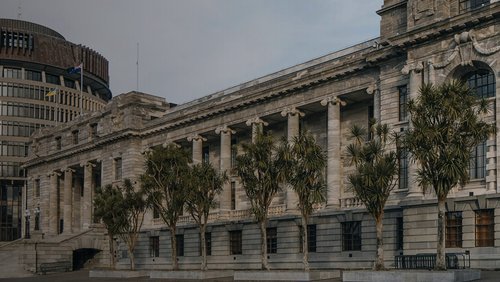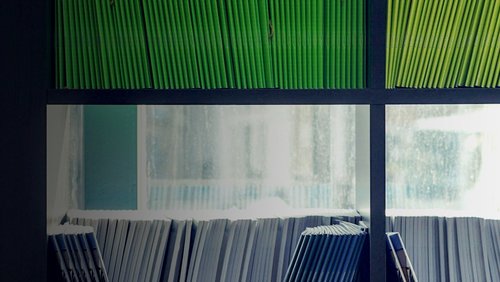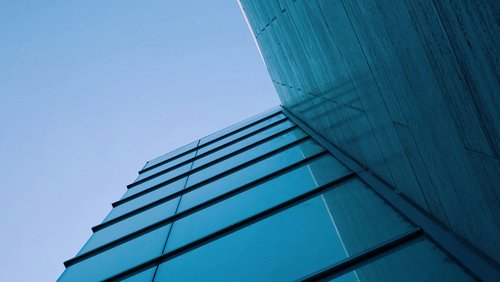8 Apr 2020
During these difficult times, it's hugely encouraging to see good old Kiwi ingenuity shine and communities come together to support one another. Amid all the negative news, there are some fantastic, positive stories about how Kiwi engineers from all over the country are applying their skills to help ease the burden of Covid-19.
Microwave medical imaging
University of Waikato professor and 2020 Engineering New Zealand Fellow Dr Yifan Chen and his team have been working on the development of microwave medical imaging for a decade.
The emerging method is a hand-held, contactless, low-cost way to show changes in the lungs and could be revolutionary in the Coronavirus response. Such capabilities could help with early detection of the virus, indicate whether a patient is likely to have a mild or severe case of the illness, or to monitor how patients' lungs are recovering after diagnosis.
The idea is new and there aren’t devices available on the market yet. But with Covid-19 predicted to be a long-term battle, the machinery could come in handy down the line.
Solving the supermarket line issue
Dunedin computer engineer, Gareth Hayes might have helped solve the supermarket queue issues. His website How long is the line lets users check how long the queues are at different supermarkets.
Gareth’s website allows customers who have just been at a supermarket to report approximately how many people are waiting in line. And if a store isn't listed, users can simply add it to the website.
Design a medical ventilator
A group of Canadian medical researchers issued a global innovation contest ‘Code Life Ventilator Challenge.’
The task at hand was to design a simple, low-cost, easy-to-manufacture and easy-to-maintain medical ventilator, which could be deployed anywhere in the world to help fight Covid-19. The three winning designs would then be issued to the public for anyone to manufacture.
A group of Kiwis, mostly engineers from Rotorua and Christchurch, stepped up to the challenge. The innovative bunch built their ventilator out of irrigation and car parts that they scrambled together before New Zealand entered alert level four.
A radiologist contributed his medical expertise and the group assembled and disassembled, redesigned and documented the process, all in the space of about a week.
The Kiwi team were among 2639 participants, of 1029 teams from 94 participating countries, and achieved the incredible feat of making it in the top 65.
Kiwi inventors modify creation to help in the battle against Covid-19
The Cacophony Project’s mission is to protect our native birds and are developing a set of technologies, such as a low cost thermal imaging camera, to help monitor predators.
After Covid-19 hit, they realised these cameras could be put to another use. A team of engineers from the project were able to modify the technology to detect people with a fever – one of the most common symptoms of the virus. They could be used at airports, hospitals, supermarkets and other workplaces to help control the spread of Covid-19.
The cameras are relatively low-cost, fast, and work without needing any close contact with the person being screened.
Protective face shields
The global coronavirus pandemic has created an increased need for protective medical equipment for our health professionals. So Kiwi engineers from across the country have been utilising their resources and applying their skills to help ensure our valued medical professionals have the protective equipment they desperately need.
Christchurch based engineer Don Clucas, an associate professor at the University of Canterbury's College of Engineering, and his daughter Emma, a medical student, have developed a prototype face shield for health workers to wear during the Covid-19 outbreak – and it can even be made at home.
Don was contacted by a Canterbury District Health Board (CDHB) surgeon about developing a 3D printed full-face mask to prevent a future shortage. The printed version was effective, but it took about an hour to manufacture. So Don and Emma set about designing a plastic visor that could be laser-cut and assembled in around a minute.
Auckland engineer Liam Venter is leading an initiative named Project Face Shield. A group of volunteer 3D printing enthusiasts begun home-manufacturing face shields, and are calling on any Kiwis who also have access to the printers to help.
Masks have been marketed at $90 each online, but Liam says he's got the cost of each protective face shield down to $5 with the printers all working as volunteers and materials supplied at cost.
A similar initiative, led by mechanical engineer Ben King is also being commissioned. The Shields Up Project put out a call last week for those who have 3D printers at home to help.
Now they're widening that call and asking Kiwis who have a can-do attitude and access to laser cutters or other technology that may help, to also step up. A couple thousand have already been made around the country by volunteers.
Chris North, an engineer from South Auckland isn't the first Kiwi to put his mind to the task of developing protective face shields but claims his design costs as little as 20 cents to produce.
Chris' design is based on the principle of simplicity. All you need is an A4 sheet of clear film, a hole puncher and a rubber band or hair tie to act as a strap and you have yourself a face shield.
If you any other stories to share about how Kiwi engineers are helping out amid the Coronavirus outbreak, then please get in touch – we’d love to hear from you!




